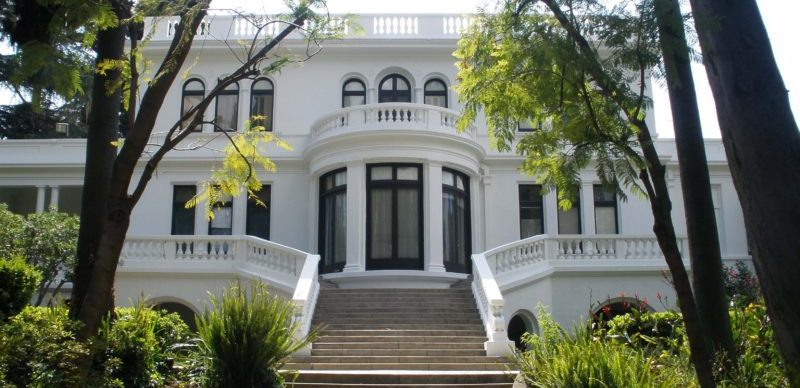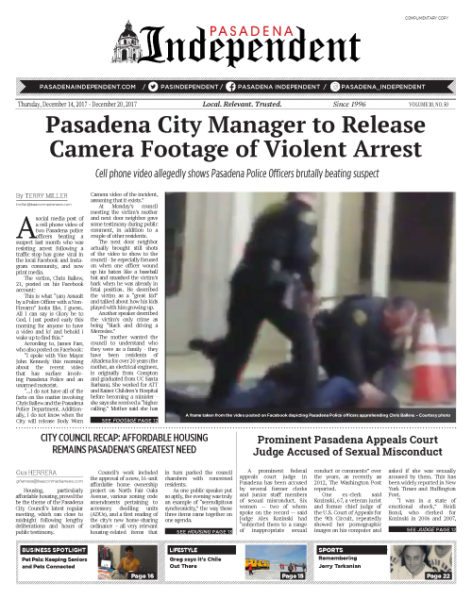
By Gus Herrera
Housing, particularly affordable housing, proved the be the theme of the Pasadena City Council’s latest regular meeting, which ran close to midnight following lengthy deliberations and hours of public testimony.
Council’s work included the approval of a new, 16-unit affordable home ownership project on North Fair Oaks Avenue, various zoning code amendments pertaining to accessory dwelling units (ADUs), and a first reading of the city’s new home-sharing ordinance – all very relevant housing-related items that in turn packed the council chambers with concerned residents.
As one public speaker put so aptly, the evening was truly an example of “serendipitous synchronicity,” the way these three items came together on one agenda.
The North Fair Oaks project is a unique feat for Pasadena, as it will theoretically add 16 new home owners to the city – a true achievement given the difficulty of the finding developers to invest in affordable housing.
Located at 1661 and 1669 N. Fair Oaks, the project is made up of two developments, Decker Court and Gill Court.
The first is named for the historic Decker House, which will be relocated to District 1 and renovated/converted into two affordable units as part of the project. Decker Court will total nine units, consisting of two-, three-, and four-bedroom homes.
The Gill Court will have seven units, a mix of three- and four-bedroom homes.
According to city staff, all units are expected to be sold by 2020.
In addition to providing affordable homes, the project will bring several other local benefits: construction will utilize local hiring, local home buyers will be given preference in selection, and the Decker House, a local landmark, will be preserved.
Council Member Tyron Hampton, welcomed the project to his district as a “great addition” and praised the added opportunities for affordable home ownership.
Mayor Terry Tornek similarly appreciated the achievement, “to produce 16 for-sale units in the context of the demand for affordable housing … is really a drop in the bucket.”

The main event of the evening was a public hearing to discuss amendments to the city’s ADU regulations.
The changes were necessary to comply with new California laws, which essentially limit a city’s ability to regulate ADUs – the state’s approach to combating rising property prices and a lack of affordable housing.
David Reyes, director of planning and community development, said it was challenging to strike a delicate balance between preserving neighborhood character and complying with state law.
Significant changes to the city’s ADU ordinance will mostly impact newly-constructed ADUs and include new regulations for location, setbacks, tree preservation, maximum unit size, and more. New ADUs visible from the street will also be prohibited in the city’s historic, landmark, and hillside overlay districts.
The changes were conceived, in part, from feedback received at six community meetings held with various neighborhood associations, although public opinion was not as uniform as one might think.
Some residents called for less restrictions, while others feared the potential consequences fewer regulations will have on a neighborhood’s character.
Council also chose to vote against staff’s recommendation to waive and lower certain fees related to the construction of new ADUs.
Council Member Victor Gordo warned that lowering the price of creating a new ADU might attract speculators who are interested in flipping houses. In his eyes, staff’s recommendation to waive the fees would essentially provide a city subsidy to potential flippers.
Furthermore, this process would produce the opposite intended effect, raising housing prices throughout the city instead of providing affordable opportunities.
In the end, council directed city staff to return with a modified proposal pertaining to the ADU fees, as well as to provide clarification to any applicants who are currently in the process of constructing an addition.
The evening concluded with a first reading of the city’s new short-term rental ordinance, which “will minimize potential negative impacts on neighborhoods, establish a permit and enforcement process, and require hosts to remit transient occupancy tax.”






